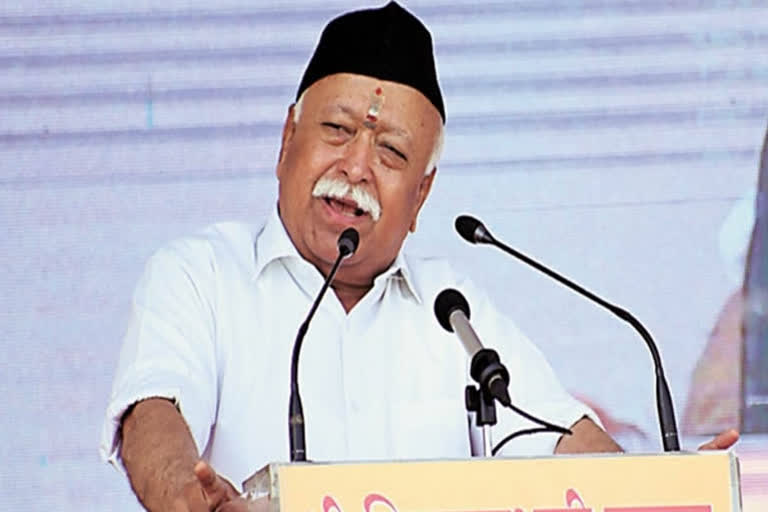Nagpur:Expressing concern over the "rapid growth" in the country's population, RSS chief Mohan Bhagwat on Friday called for a review and reformulation of the National Population Policy by keeping the next 50 years in mind along with the availability of resources.
He called for curbing the illegal infiltration from across the borders and preparing the National Register of Citizens (NRC) to prevent the infiltrators from acquiring citizenship rights and purchasing lands in the country.
Speaking during his annual Vijayadashmi address to RSS workers at Reshimbagh here, Bhagwat also said the share of population of people belonging to religions of "Bharatiya origin" which was earlier 88 per cent, has come down to 83.8 per cent, while that of the Muslim population which was 9.8 per cent in the past has increased to 14.23 per cent between 1951 to 2011.
"Ours is a nation of youths having about 56 to 57 per cent young population, who will become old 30 years later and many hands would be needed to feed them. How many hands would needed to feed them?...All these aspects need to be contemplated. Similarly, whether our enviroment would be able to sustain this population and whether our mothers are capable and empowered needs to be contemplated," he said.
"A population policy keeping in mind the next 50 years should be formulated and which should be implemented uniformly for everyone. Because as population can become a problem its imbalance can also become a problem," he added.
According to him, a resolution 'Challenge of imbalance in the population growth rate' passed by the Akhil Bharatiya Karyakari Mandal (ABKM), the top policy making body of RSS, in Ranchi in 2015, had mentioned that the steps taken to control the population had yielded adequate results during the previous decade.
Bhagwat said that ABKM was of the opinion that severe demographic changes brought forth by the analysis of the religious data of Census 2011 highlighted the necessity of the review of population policy.
Citing the resolution, Bhagwat said vast differences in growth rates of different religious groups, infiltration and conversion resulting in religious imbalance of the population ratio, especially in border areas, may emerge as a threat to the unity, integrity and cultural identity of the country.
Also Read:Pain of partition still hurts, important to know history to avoid repetition: Mohan Bhagwat
He further said that although India was one of the early countries in the world to announce in 1952 that it will take population planning measures, it was only in 2000 that a comprehensive population policy was formulated and a population commission was formed.
